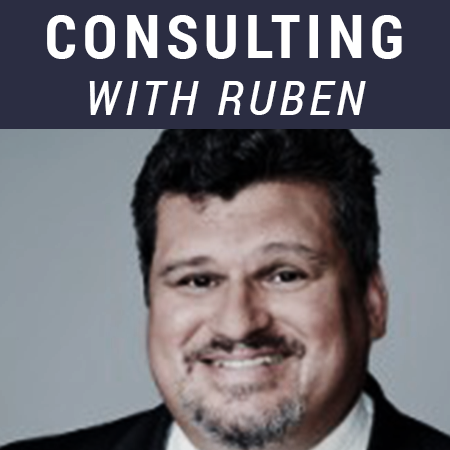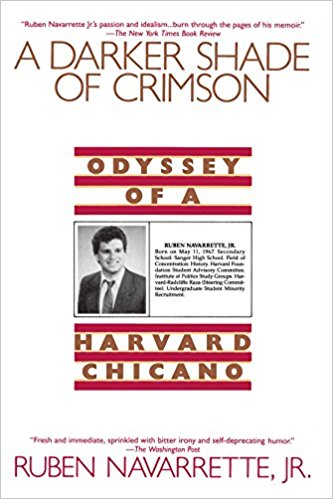It’s been a few weeks since the Fourth of July. And yet, an image that circulated on Facebook that day still haunts me.
A brown-skinned boy is locked in a cage, staring up as fireworks explode in the sky. The caption: “Not feeling very patriotic this year.”
The meme wound up being passed around by many of my Latino friends. It seemed to sum up how a lot of them were feeling, living as brown-skinned people in Donald Trump’s AEW — Age of Extreme Whiteness.
The meme’s message: “America, you’re mistreating us, and you obviously don’t love us. Therefore, we’re not sure we love you either.”
For the record, I don’t agree with any part of that sentiment. I’m a U.S.-born, Mexican-American Yankee Doodle Dandy who loves my country unconditionally, even if I don’t support everything it does.
But I fully understand the sentiment, and I know where it is coming from. It’s been festering in the U.S. Latino community in the three years since Trump descended the escalator in Trump Tower and began his ascension in American politics. Trump got far by accusing Mexico of “not sending their best” and instead “sending people that have lots of problems” — criminals, rapists, drug traffickers etc.
Since then, it’s been one insult after another toward Latinos from the Offender-In-Chief. And all that targeted abuse has predictably made Trump one of the most hated figures in U.S. history, as far as America’s largest minority is concerned. What Gov. George Wallace of Alabama was to African-Americans, that’s what Trump represents to Latinos.
Yet what wasn’t predictable, and what is truly regrettable, is that some of that animosity has now spilled over to something much bigger and grander and nobler than Trump: the United States of America.
Part of the reason for the spillover could be that many Latinos haven’t yet forgiven our friends and neighbors for saddling us with Trump in the first place. Obviously, they weren’t bothered by his racist appeals to our darker instincts. What does that say about them?
Or it might be that we think Trump has uncorked a racist brew that was bubbling for years. You want to talk about civility: White House Press Secretary Sarah Huckabee Sanders was denied service in a Virginia restaurant; conservatives insisted that civility was dead. No kidding. No one knows this better than America’s most vilified minority.
A white woman in Southern California scolds a Mexican woman doing the landscaping for speaking Spanish. A woman in Chicago is berated by a white man for wearing a t-shirt with the Puerto Rican flag on it. An elderly man in Los Angeles is beaten bloody by an African-American woman wielding a brick who told him to “go back to your own country.”
We’re way beyond missing brunch. It’s open season on Latinos.
Some people blame that on Trump, but others blame the country that elected him. That is why so many Latinos are so ambivalent about love of country. It’s not just Trump. It’s the fact that someone like Trump could get elected president. Who do we see to complain about that?
For Latinos, patriotism has always come easily. It started when we crossed the border — or, more accurately, as is the case with many Mexican-Americans, when the border crossed us. Our ancestors came from impoverished countries, and so we felt an incalculable debt to this country that took us in and gave us a second chance at our dreams.
As a down payment on what we owe, Latinos have higher-than-normal rates of military service. We have more than our share of Purple Hearts, Silver Stars and Medals of Honor. We practically grew up at grandma’s house, where we saw black-and-white photos of deceased uncles in uniform resting on the mantle, a string of rosary beads draped over one corner. We’ve heard our fathers and grandfathers tell stories about Iwo Jima, Pork Chop Hill and Khe Sanh. And now, we pray to the Virgen de Guadalupe to keep our brothers and cousins safe in Kabul and Fallujah.
The nativists and racists can talk all day long about how Latinos aren’t real Americans, but we know the truth. When it comes to loss, sacrifice, and heartbreak, we gave at the office — and then we gave some more. Our love for this country is complete. We’re all in.
We know America isn’t perfect. Who are you telling? We’ve seen discrimination up-close. But we also know this country has the capability of correcting mistakes and reversing course.
This momentary ambivalence toward patriotism will pass.
What will endure is our love of country, and our recognition that everything we have — from our love of freedom to our sense of personal safety to our material possessions — we owe to this “one nation under God, indivisible, with liberty and justice for all.”
Ruben Navarrette, a contributing editor to Angelus News, is a syndicated columnist with The Washington Post Writers Group, a member of the USA Today Board of Contributors, a Daily Beast columnist, author of “A Darker Shade of Crimson: Odyssey of a Harvard Chicano,” and host of the podcast “Navarrette Nation.”





